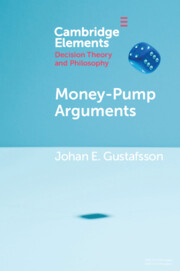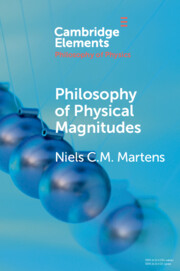Money-Pump Arguments
Suppose that you prefer A to B, B to C, and C to A. Your preferences violate Expected Utility Theory by being cyclic. Money-pump arguments offer a way to show that such violations are irrational. Suppose that you start with A. Then you should be willing to trade A for C and then C for B. But then, once you have B, you are offered a trade back to A for a small cost. Since you prefer A to B, you pay the small sum to trade from B to A. But now you have been turned into a money pump. You are back to the alternative you started with but with less money. This Element shows how each of the axioms of Expected Utility Theory can be defended by money-pump arguments of this kind. This title is also available as Open Access on Cambridge Core.
Product details
October 2022Paperback
9781108718950
100 pages
228 × 152 × 6 mm
0.16kg
Available
Table of Contents
- 1. Money-pump arguments
- 2. Acyclicity
- 3. Completeness
- 4. Transitivity
- 5. Independence
- 6. Continuity
- 7. Against resolute choice
- 8. Against infinite money pumps.






